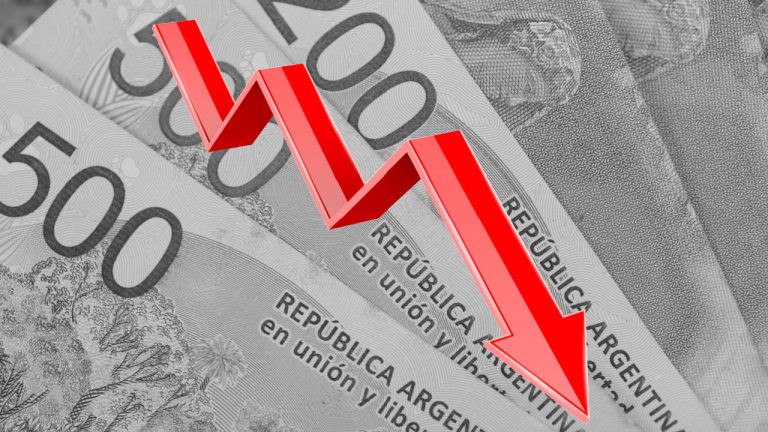Argentine Peso Plunges to a 5 Month Low Amid Legal and Political Woes

The Argentine Peso has experienced a sudden fall vs the U.S. dollar, falling to a 5-month low in its blue rate, one of the many parallel exchange rates of the country. The reasons for this fall, besides the abundance of pesos due to holiday-related payments, and the battle between President Alberto Fernandez and Argentine courts.
Argentine Peso Falls Sharply Against the US Dollar
The Argentine peso is facing a sudden downturn that has taken the value of the currency to historic lows. On Dec. 23, local media informed one of the informal exchange rates of the currency vs the U.S. dollar, denominated “blue dollar,” had reached the 340 pesos mark. This marks a 5-month low after a period in which the peso maintained its value relatively steady.
The last time that the peso plunged in this way was in July when the country was also submerged in a period of political instability with the resignation of Finance Minister Martin Guzman. The historical minimum exchange rate is 350 pesos per U.S. dollar, reached in June.
Analysts have proposed several explanations for this situation, including the occurrence of the holiday seasons when more pesos are in the street and Argentines run to hedge their savings in foreign currency. However, other political factors are also present at this time.
Political and Financial Instability
President Alberto Fernandez decided to ignore a decision taken by the maximum justice tribunal of the country, that would give a bigger percentage to the city of Buenos Aires from taxes collected at a provincial level. The tribunal ordered the national government to deliver 2.95% of these taxes to the city on Dec. 21.
This has spurred a climate of legal uncertainty that, according to some analysts, is affecting the value of the Argentine peso, and will continue to affect it in the future. This decision lifts worries on other flanks too, former Finance secretary Miguel Kiguel explains. He stated:
It is logical that questions arise about the fulfillment of the contracts. If the Government does not comply with the ruling of the Supreme Court, the question of what is fulfilled and what is not opens.
This battle affects the credibility and investors in the country must also hedge their savings in U.S. dollars, which in turn causes these sudden disruptions in the exchange rate. Venezuela is another country that is also facing severe difficulties with its fiat currency, which has reached an exchange rate of almost 18 bolivares per U.S. dollar, one of the highest in its history.
What do you think about the recent behavior of the U.S. dollar- Argentine peso exchange rate and the causes behind it? Tell us in the comments section below.



